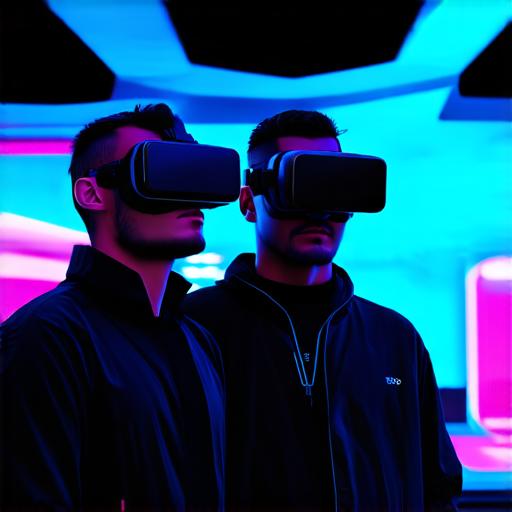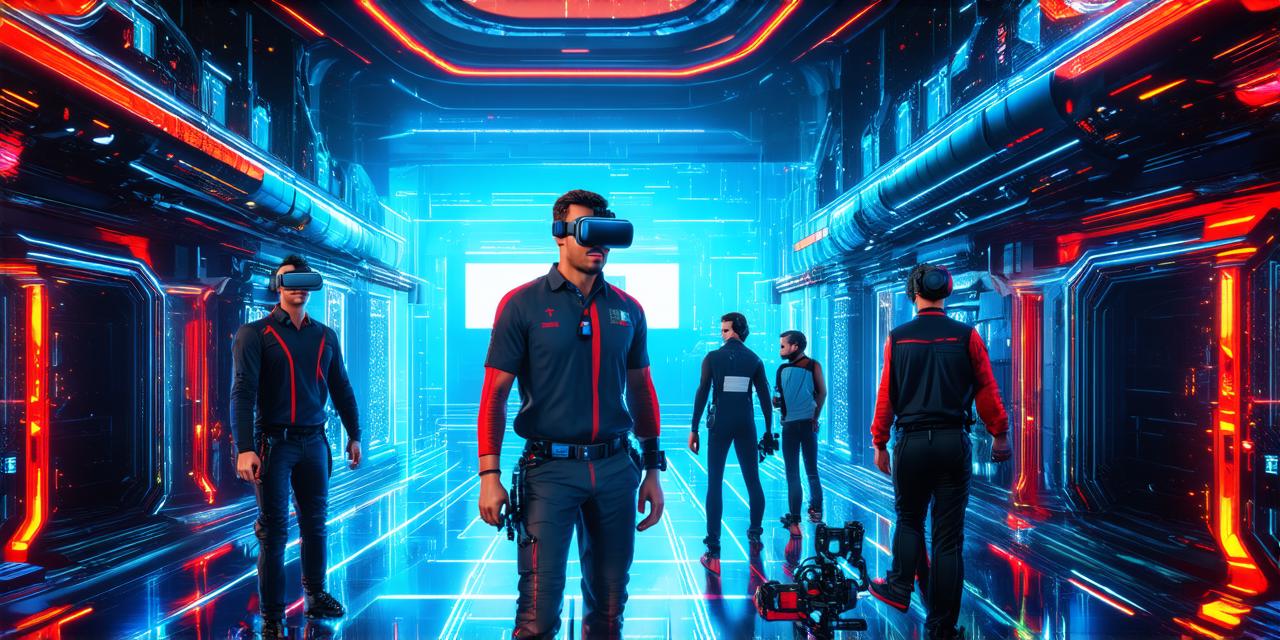Virtual reality (VR) is transforming industries from entertainment to healthcare and education. In this guide, we’ll explore the impact of VR on society, highlighting examples of its potential to change people’s lives. We’ll also discuss some of the challenges that come with this technology and how developers can overcome them.

Impact on Entertainment Industry:
Virtual reality has already disrupted the entertainment industry, giving users immersive experiences that were previously impossible. VR headsets have brought gaming to life, allowing players to explore new worlds and interact with characters in ways never before possible.
One example of this is the game “Beat Saber” which allows users to use virtual reality controllers as light sabers to slash through incoming blocks that represent musical beats. The game has become a favorite among gamers, with many citing its immersive experience and unique gameplay as key factors in its success.
Virtual reality is also being used for more traditional forms of entertainment such as movies and live shows. For example, the band Owl City created an interactive VR experience that allowed fans to join them on stage during a concert. This experience gave users a chance to see the band from a unique perspective and interact with them in ways that were previously impossible.
Impact on Healthcare Industry:
Virtual reality has also had a significant impact on healthcare, allowing for more immersive and interactive training experiences for doctors and nurses. For example, VR simulations allow medical professionals to practice surgeries and other procedures in a safe and controlled environment, reducing the risk of errors and improving patient outcomes.
One company, Medscape, offers a VR simulation called “Medscape Surgery” that allows surgeons to practice various procedures using a virtual patient. The program includes realistic graphics and haptic feedback, allowing users to feel as though they are performing the surgery on a real patient.
Virtual reality is also being used for therapy in mental health and addiction treatment. For example, “TherapeVR” uses VR to simulate real-world situations that trigger anxiety or phobias in patients, allowing them to confront and overcome these fears in a controlled environment.
Impact on Education Industry:
Virtual reality has also had a significant impact on education, allowing for more immersive and interactive learning experiences. For example, VR simulations can allow students to explore historical events or scientific concepts in a way that is not possible with traditional textbooks or lectures.
One company, Discovery VR, offers a range of educational experiences that use virtual reality to bring science and history to life. For example, their program “Discovery VR: Alien Worlds” allows students to explore different planets and environments in search of extraterrestrial life.
Virtual reality is also being used for language learning, with programs like “VR Polyglot” allowing users to practice speaking in a virtual environment that simulates real-world scenarios. This can help learners improve their conversational skills and confidence in speaking the language.
Challenges:
While virtual reality has enormous potential, there are also several challenges that come with it. One of the biggest challenges is the cost of VR equipment and software, which can be prohibitively expensive for many organizations.
Another challenge is the motion sickness that some people experience when using VR headsets, which can limit its use in certain applications. However, developers are constantly working on improving the technology and reducing the risk of motion sickness.
Finally, there are concerns about the impact of virtual reality on social interaction and the potential for addiction. While virtual reality can be a great tool for learning and entertainment, it’s important to use it in moderation and maintain a balance with real-world experiences.
Conclusion:
Virtual reality is already having a significant impact on society, from entertainment to healthcare and education.
